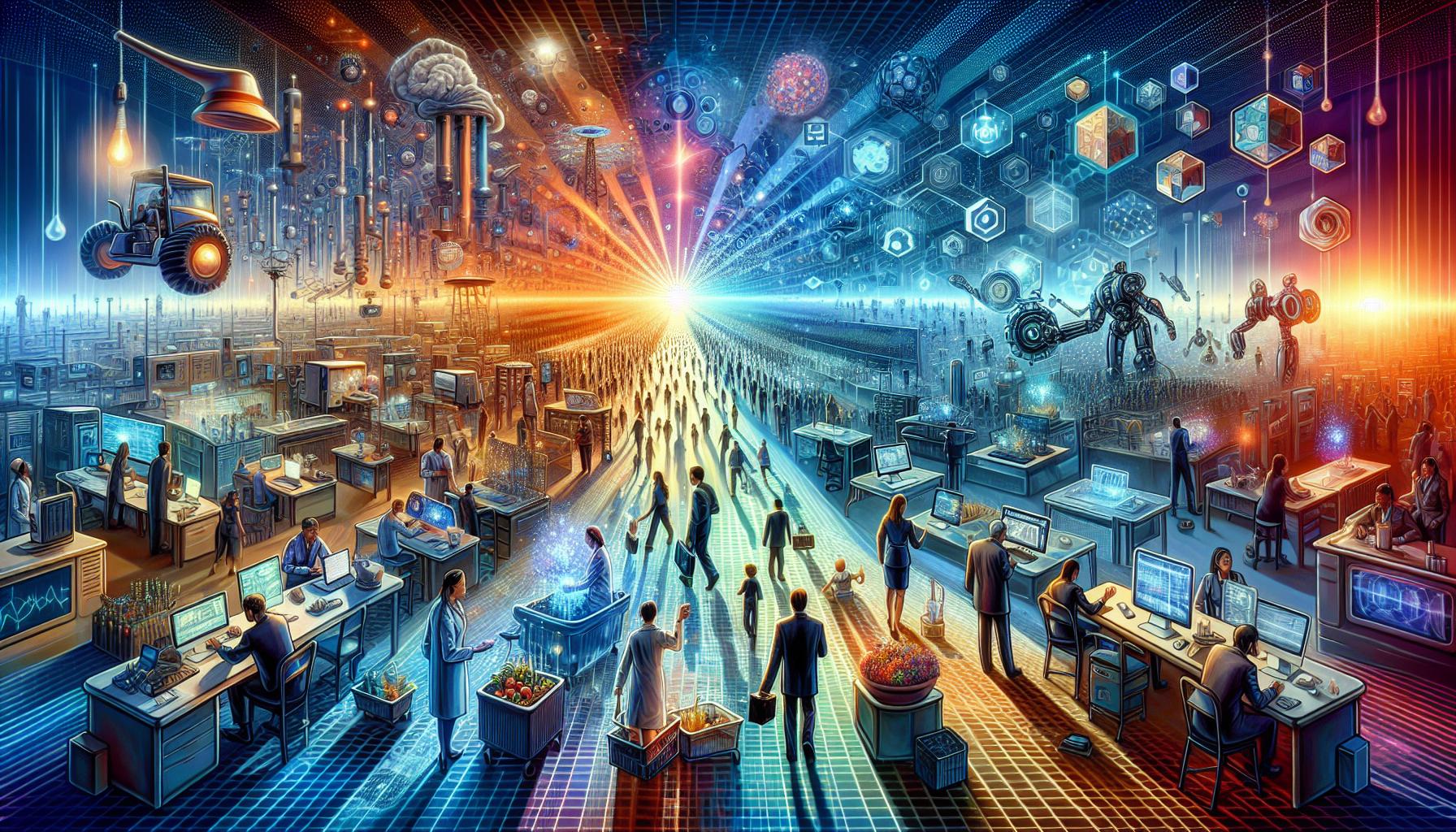Artificial Intelligence (AI) Transforming Healthcare and Sports Medicine
Artificial Intelligence (AI) has made significant strides in transforming healthcare and sports medicine. It is playing a pivotal role in improving diagnostic accuracy, cancer detection, and even robotic surgeries. In addition, AI is revolutionizing medical record maintenance, making it more efficient and accessible. For sports medicine, AI has proven instrumental in injury prevention, with advanced algorithms analyzing vast amounts of data to identify risk factors and recommend preventative measures.
Looking to the future, AI in healthcare is expected to go beyond diagnosis and treatment and be integrated into patient care. Predictive analytics will help identify risks before they become critical, enabling preventive healthcare. Collaborations between AI and human healthcare professionals are also on the horizon, where AI can assist doctors and nurses in decision-making processes and provide valuable insights based on vast amounts of data.
However, as AI continues to revolutionize the healthcare and sports medicine sectors, challenges such as data privacy and job displacement need to be addressed. Striking the right balance between technological innovation and safeguarding patients’ rights and well-being is essential.
AI’s Impact on Manufacturing and Autonomous Vehicles
AI is rapidly transforming manufacturing processes and pushing businesses towards a new era of automation. By leveraging AI’s capabilities, manufacturing companies can achieve higher levels of productivity, optimize supply chain management, and improve overall business growth. AI’s influence extends to the automotive industry, where it is revolutionizing autonomous vehicles and increasing road safety.
AI-powered GPS systems can analyze real-time traffic data to provide optimal routes for autonomous vehicles, reducing traffic congestion and accidents. Logistic companies are also benefiting from AI by optimizing routes and assessing traffic conditions, resulting in enhanced operational efficiency.
The integration of AI technology into manufacturing and transportation sectors holds tremendous potential for economic growth and increased sustainability. However, as with any technological advancement, concerns regarding job displacement and the need for upskilling the workforce are important considerations that must be addressed.
AI Revolutionizes Financial Services and E-Commerce
Financial services have witnessed a significant transformation with the adoption of AI. Wealth management, fraud detection, and loan risk evaluation are some of the areas where AI has made a remarkable impact. AI algorithms analyze vast amounts of financial data to provide actionable insights, enabling financial institutions to make informed decisions and mitigate risks effectively.
AI has also revolutionized e-commerce by identifying customer behavior trends and enhancing customer service. AI-driven chatbots are being used to provide real-time assistance and issue resolution, revolutionizing online customer care interactions. By understanding and predicting customer preferences, e-commerce platforms can tailor their offerings, leading to higher customer satisfaction and increased sales.
In financial services and e-commerce, the use of AI has not only improved efficiency but also enhanced the overall customer experience. However, privacy concerns related to the handling of personal financial data and the need for human oversight to address complex cases remain important considerations.
Enhancing Cybersecurity, Education, and Agriculture with AI
AI is playing a crucial role in enhancing cybersecurity, education, and agriculture. In the realm of cybersecurity, AI algorithms can detect patterns and anomalies in data to identify and prevent fraudulent activities. AI-driven systems can learn from previous attacks and continuously evolve to stay one step ahead of cyber threats.
In education, AI is revolutionizing personalized learning experiences. Advanced algorithms analyze individual learning patterns and adapt teaching methods to cater to each student’s needs. This approach allows for customized learning paths, better engagement, and improved learning outcomes.
In agriculture, AI is transforming farming practices through precision farming. AI algorithms analyze vast amounts of data, including weather patterns, soil conditions, and crop health, to optimize farming practices. This leads to increased efficiency, reduced resource waste, and higher crop yields.
While AI brings immense opportunities in cybersecurity, education, and agriculture, ethical considerations, such as data privacy, bias, and equitable access to AI-powered systems, need to be addressed to ensure the responsible and fair use of technology in these sectors.
Government and Tech Sector Embrace the Power of AI
The federal government and the tech sector have fully embraced the power of AI. Governments around the world have adopted a digital-first approach, powered by AI, automation, machine learning, and cloud computing. This digital transformation has led to cost savings, increased operational efficiency, and faster service delivery to citizens.
The tech sector itself has undergone a significant transformation with the rise of AI. The impact of AI in everyday technology is projected to be in the trillions of dollars, underscoring its mainstreaming as an essential part of our lives. From virtual assistants to facial recognition technology, AI has become omnipresent, improving user experiences and enabling innovative solutions to everyday challenges.
As AI continues to evolve, it is crucial to ensure responsible innovation that safeguards privacy, minimizes bias, and ensures the equitable distribution of benefits derived from this technology. Ongoing collaboration between governments, tech companies, and other stakeholders is essential to shaping AI’s future in a way that best serves society as a whole.
Analyst comment
Positive news: Artificial Intelligence (AI) is transforming various sectors, including healthcare, sports medicine, manufacturing, autonomous vehicles, financial services, e-commerce, cybersecurity, education, agriculture, and government. AI is improving efficiency, accuracy, productivity, and customer experiences. However, challenges such as data privacy, job displacement, and ethical considerations need to be addressed for responsible and fair use of AI. The market is expected to continue growing and evolving with ongoing collaboration among stakeholders.













